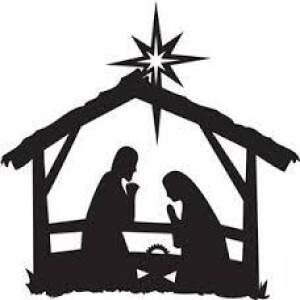Episodes

Wednesday Dec 25, 2024
Preparing for Worship - December 29, 2024
Wednesday Dec 25, 2024
Wednesday Dec 25, 2024
This is the First Sunday after Christmas. The focus of the readings turns to the early days after the birth of our Savior Jesus, especially in the Gospel lesson. (We also hear more at the circumcision and naming of Jesus in Luke 2:21 and in the Epiphany story of the coming of the Magi and then the escape to Egypt in Matthew 2:1-23.)
The Old Testament lesson is from Exodus 13:1-3a,11-15 and helps us understand what was going on with the “presentation of Jesus to the Lord” in the Gospel lesson. The last plague that came upon the Egyptians and convinced the Pharaoh to let the Israelites go free was the death of all firstborn males and animals of the Egyptians. The Israelites were spared from this plague by celebrating the Passover meal and putting the blood of the sacrificed lamb on their doorposts. At the same time, this meant that the firstborn males and firstborn animals who were spared belonged to God, set apart for Him. The firstborn male children could be “redeemed,” bought back from God, though, by a sacrifice. These firstborns were still to serve the Lord throughout their lives, but later on, the Levites were chosen to serve the Lord in their place in the Tabernacle and temple. (See Numbers 3:11-13 and 8:16-18.) All this was to be like “marks” or “frontlets” sometimes worn on people, reminding them of God’s rescue of them from Egypt.
The psalm is Psalm 111. The psalmist is not identified but gives thanks to the Lord in a wholehearted way, praising Him, especially for His many works, which benefit His people in so many ways. The psalmist piles up a list of the Lord’s qualities. He is gracious and merciful, faithful and just and trustworthy. He remembers His covenant with His people and sends redemption to them. What He has done is “to be studied and delighted in.” “His righteousness endures forever.”
In the Gospel lesson, Luke 2:22-40, we see that Jesus, even as an infant, is clearly identified as the One sent from God the Father to be the redeeming Savior, as the psalmist hoped for and expected. Jesus was circumcised 8 days after birth (Luke 2:21), but Mary had to wait another 33 days before she and Joseph could go to the temple in Jerusalem for her purification from her time in pregnancy and childbirth. (See Leviticus 12. She and Joseph were very poor people, for only the cheapest animal sacrifice was done for her cleansing and for Jesus to be presented to the Lord as the Firstborn Child and then released back to the family. Jesus, however, would never be released from His service to His heavenly Father. In his perfect life for us and in His death in our place for our sins.)
While they were in the temple, a devout believer, Simeon, was led by the Holy Spirit to come to the temple. He realized that Jesus was the One promised to bring salvation and the Light of Revelation for both Jews and non-Jews. Simeon could now depart this life in peace, for the Savior had finally come, and his own eyes had seen Him. Simeon also needed to predict that Jesus would face opposition and people would rise or fall, depending on whether they would trust in Him (Jesus) or not. Mary would also have a pierced heart because of what would happen, referring especially to the suffering and death of Jesus on the cross.
Another faithful believer, Anna, who had had a difficult life, also came to the temple, trusting the Lord. She, too, realized that Jesus was the Promised Redeemer, and she began to give thanks to God and tell her fellow believers about Him. Later, after the escape to Egypt that Matthew tells about, Joseph, Mary, and Jesus returned to Nazareth in the area of Galilee. And the Lord blessed Jesus, and He grew wise and strong, and the favor of the Lord was upon Him.
The Epistle lesson, Colossians 3:12-17, takes us many years later, after Jesus had lived and died and risen again and completed all of His saving work for the world. Now Paul, a Jewish convert to Christ, writes to fellow believers chosen by the Lord in the city of Colossi. He calls upon them to seek to have Christ-like qualities of compassion and kindness and patience and forgiveness and love in dealing with one another. They would need Christ’s peace in their hearts and His Word living in them richly as they worshiped and sang and taught and served each other and the Lord with thankfulness. In word and deed, they were to speak and act, mindful of Christ and giving thanks to God. None of this could they do on their own, but only as they “continued in the faith, stable and steadfast, not shifting from the hope of the Gospel which they had heard” (Colossians 1:23).


No comments yet. Be the first to say something!